Diabetes and Neuropathy Treatment in Bayshore Gardens, FL
Living with neuropathy and diabetes is a challenge that millions of Americans face every day. Neuropathy - which comes in several forms and manifests in many ways - can affect any person. In the United States, neuropathy and diabetes often go hand-in-hand, with about 50% of people with diabetes suffering from the condition. In fact, the number of people with neuropathy is only increasing as diabetes becomes more common and the population ages.
People who suffer from these conditions must endure painful and disruptive symptoms, such as:
- Intense Bouts of Sharp, Burning Pain
- Numbness, Prickling, or Tingling in the Hands and Feet
- Decreased Muscle Strength and Paralysis
- Trouble with Balance and Coordination
- Unusually High Sensitivity to Touch
- Digestive and Bladder Control Issues
While some patients are at a greater risk of developing certain types of neuropathy, it doesn't discriminate between sex, race, age, or medical history. Fortunately, neuropathy and diabetes awareness are growing. By proxy, so are new and exciting treatment options that show dramatic improvements in both conditions.
If you've been suffering from the symptoms of diabetes or neuropathy and are in search of a truly effective solution, Sarasota Neuropathy Center can help. Unlike some clinics, our commitment is to offer more than temporary relief. As a diabetic and neuropathy treatment specialist in Bayshore Gardens, FL, we aim to rectify the distinct root causes underlying each patient's symptoms.
But to understand how we're able to accomplish that goal, you've got to first understand the nuances of neuropathy and diabetes.
There are several types of diabetes of which you should be aware:
Other types of diabetes can include:
- Monogenic Diabetes
- Cystic Fibrosis-Related Diabetes
- Secondary Diabetes
Service Areas
Neuropathy 101
Neuropathy is a medical condition that arises when the peripheral nerves, which are responsible for transmitting signals between the brain, spinal cord, and other parts of the body, fail to function correctly due to damage or disease. These nerves are essential for detecting sensations such as warmth, cold, and pain, as well as regulating muscle movement and carrying out automatic processes like digestion and heartbeat without our conscious involvement.
What Causes Neuropathy?
When patients speak with a nerve pain doctor for the first time, they have a lot of questions, and rightfully so. At Sarasota Neuropathy Center, one of the most frequently asked questions we hear centers around the factors causing neuropathy. If you're reading this article, chances are you have similar questions. While we can't pinpoint what's causing your neuropathy without proper testing, here are a few of the most common factors that can cause neuropathy to manifest:

Diabetes
Diabetes is one of the leading causes of diabetes in adults - especially when a person has dealt with high blood sugar levels over long periods of time. When diabetes harms your nerves, it can lead to diabetic neuropathy and create a recurring trigger for this type of nerve damage.

Lack of Vitamins
Your nerves require certain vitamins, including B1 (thiamine), B12, B6, and vitamin E, to function correctly. Without a balanced diet or supplementation, deficiencies in these vitamins can lead to nerve damage over time.

Autoimmune Disorders
In certain instances, a person's immune system accidentally attacks its own cells, including nerve tissues. When this happens, neuropathy often follows. Diseases such as lupus, rheumatoid arthritis, and Guillain-Barré syndrome come under this category, where the immune system's misguided attack on nerves causes dysfunction and pain.

Genetics
Neuropathy can be inherited in some families, meaning it is passed down from one generation to another. When this occurs, peripheral nerves can be affected by genetic forms of the condition, such as Charcot-Marie-Tooth disease.

Infections in the Body
There are certain viruses and bacteria that have the ability to attack nerve tissues and also cause conditions that can result in nerve damage. Examples of such infections include Lyme disease, HIV, and hepatitis C. These illnesses have the potential to either initiate or worsen existing neuropathy.

Physical Trauma
Physical injuries, whether caused by accidents, repetitive movements, or falls, can lead to nerve damage. Such injuries can result in neuropathy, causing loss of function and painful sensations in the affected region of the body.
What are the Different Types of Neuropathy?
Peripheral neuropathy is a condition that can affect one nerve, a group of related nerves, or multiple nerves in different parts of the body. The symptoms can vary depending on which type of nerve signals are affected. Keep reading for a closer look at the various types of neuropathies and how they affect you. If one of the categories below sounds familiar, make a mental note to discuss it with your diabetic and neuropathy treatment specialist in Bayshore Gardens, FL.
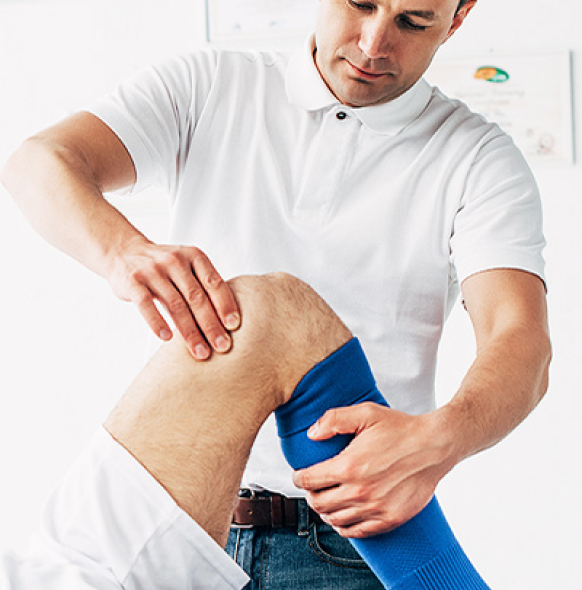
Peripheral Neuropathy:
Nerve Pain in Your Arms and Legs
Of all the different types of neuropathies, this is the kind that you're probably most familiar with, as it's the most common form treated in the U.S.It occurs most often when the nerves responsible for transmitting messages of touch and movement between your brain and your extremities don't function properly.
Symptoms can include:
- Sensations of Pins and Needles
- Numbness
- Soreness
- Cramping
- Shooting Pains
As the condition progresses, muscle weakness can occur, making it difficult to perform precise movements and walk without assistance. Balance problems are also common.
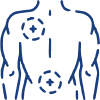
Focal Neuropathy:
Nerve Pain in a Specific Area
Focal neuropathy can sometimes result in damage to a single nerve or a cluster of nerves in a particular region, leading to localized pain or weakness. For instance, carpal tunnel syndrome can affect the wrist, causing numbness or weakness in the hand. Similarly, Bell's palsy can impact the face, resulting in droopiness or stiffness on one side of the face.
Other symptoms can include:
- Muscles Don't Work Correctly
- Sharp Pains
- Localized Pain and Weakness

Autonomic Neuropathy:
Nerve Pain That Controls Automatic Body Functions
This type of neuropathy affects the nerves that control involuntary bodily functions, such as heartbeat, digestion, and bladder control. When these nerves are damaged
You may experience symptoms such as:
- Dizziness When Standing Quickly
- Issues with Sexual Intercourse
- Constipation
- Issues Regulating Body Temperature
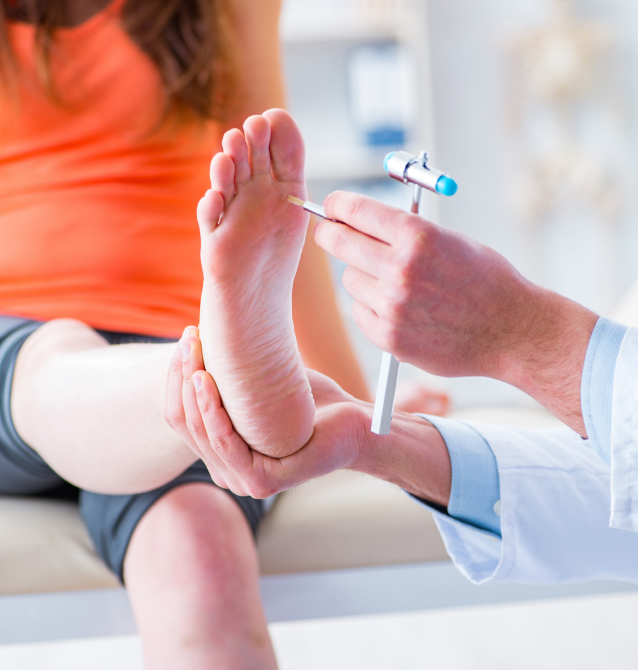
Compression Neuropathy:
Nerve Pain from Your Nerves Being Squeezed
This type of neuropathy happens when a nerve is pinched or squeezed. It happens most often when you are injured or have to repeat actions over and over again for work or sports purposes. Some examples include Carpal Tunnel Syndrome and sciatica. Symptoms can include:
Symptoms can include:
- Sharp Shooting Pain
- Weakness in the Affected Body Part
- Numbness
Whether you or someone you love are trying to live with neuropathy, you know that it can significantly alter lifestyles, making it difficult to perform day-to-day activities, work, or engage in hobbies. That's why it's so important to understand the underlying causes of your nerve pain, so that you can receive appropriate treatment and improve your quality of life. Taking care of the root problem, as well as managing the pain and other symptoms, is key to helping you stay active and comfortable. That's where working with a diabetic and neuropathy treatment specialist in Bayshore Gardens, FL, becomes crucial.
Addressing the Root Causes of Your Neuropathy
Sarasota Neuropathy Center is a nerve pain clinic that provides patients with a comprehensive, rewarding journey toward healing. It begins with a thorough evaluation that involves in-depth laboratory tests and analyses. This introductory step helps us identify the specific factors that contribute to your peripheral neuropathy. Our team of neuropathy treatment specialists then creates a personalized treatment plan tailored exclusively to your body and symptoms.
By providing you with a wide range of strategies aimed at addressing the root causes of your condition, you can achieve lasting relief and may even be able to reverse the effects of peripheral neuropathy.
Our advanced therapeutic options include:

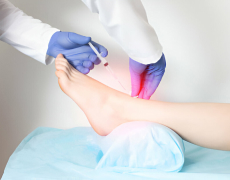
Nerve Regeneration Equipment
We use cutting-edge machinery like laser light therapy and electromagnetic impulses to stimulate your nerves, encourage repair, and foster nerve tissue regeneration.
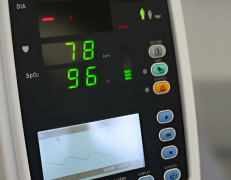
Vaso-Pulse Technology
This FDA-approved treatment sends signals through your feet and around your spine, which helps us highlight and rectify areas where nerve and vascular damage are present.

Antioxidants
By incorporating antioxidants into your treatment plan, we can better mitigate nerve damage and counteract oxidative stress.
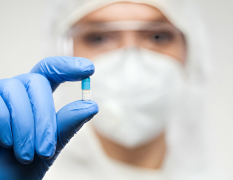
Anti-Inflammatory Treatments
Inflammation exacerbates nerve damage and pain. Our neuropathy specialists use anti-inflammatory agents to help alleviate your symptoms

Minerals and Vitamins
Nutritional deficiencies impact nerve health. We supplement those deficiencies with vitamins and minerals to help nerve repair.
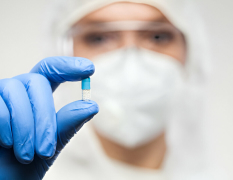
Immunomodulators
For neuropathies linked to autoimmune disorders, we employ immunomodulators that help regulate the immune system's activity to prevent it from attacking the body's own nerve tissues.

Lifestyle and Diet Changes
Changing your diet and incorporating exercise into your daily routine are two of the best ways to support nerve health.
Through a personalized, natural, and comprehensive treatment plan from Sarasota Neuropathy Center, reclaiming your life doesn't have to be a dream - it can be a true possibility.
Diabetes 101
Diabetes is a chronic metabolic disorder characterized by elevated levels of sugar in the blood. This happens when the body is unable to produce or use insulin effectively. Insulin is a hormone produced by the pancreas that helps regulate blood glucose levels by facilitating its absorption into cells for energy or storage.
There are several types of diabetes of which you should be aware:
Type 1 Diabetes
Type 1 Diabetes is a condition in which the immune system attacks and destroys the beta cells in the pancreas that produce insulin, resulting in little to no insulin production. This condition usually develops in childhood or adolescence but can occur at any age. Patients who suffer from Type 1 Diabetes have to depend on daily insulin administration to manage their blood sugar levels.
The exact cause of this autoimmune reaction is not fully understood, although it is believed that genetic and environmental factors may contribute to it. Contact your diabetic and neuropathy treatment specialist in Bayshore Gardens, FL to learn more about this disease.

Type 2 Diabetes
Type 2 Diabetes is the most common form of diabetes and is mainly caused by lifestyle factors such as obesity, physical inactivity, and poor diet. In this condition, the body either doesn't produce enough insulin or the cells don't use insulin effectively, leading to high blood sugar levels. Unlike Type 1 Diabetes, Type 2 Diabetes can sometimes be managed or reversed with lifestyle changes, although some people may still need medications or insulin therapy.

Gestational Diabetes
Gestational Diabetes is a type of diabetes that occurs during pregnancy and typically goes away after giving birth. However, it can give an indication of a woman's future risk of developing Type 2 diabetes. The condition is caused by hormonal changes during pregnancy that make the body's cells more resistant to insulin. It's important to manage Gestational Diabetes to prevent complications for both mother and baby.
Other types of diabetes can include:
- Monogenic Diabetes
- Cystic Fibrosis-Related Diabetes
- Secondary Diabetes



Genetics
You can have genetic links to both Type 1 and Type 2 Diabetes. These links make you predisposed to the condition.

Lifestyle
Poor diet, lack of exercise, and obesity all contribute to insulin resistance, which causes diabetes

Autoimmune
Your immune system mistakenly targets and eliminates insulin-producing beta cells in your pancreas, leading to insufficient insulin production and Type 1 Diabetes.

Insulin Resistance
The most prevalent type of diabetes - Type 2 Diabetes - arises when cells resist insulin's effect, causing a spike in blood sugar levels.
The Sarasota Neuropathy Approach to Diabetes Care
As a diabetic and neuropathy treatment specialist in Bayshore Gardens, FL, we are committed to offering a groundbreaking approach for Type 2 Diabetes, which focuses on reversing the condition by addressing the root causes rather than just managing the symptoms. Our innovative strategy goes beyond conventional treatment paradigms and delves into the underlying factors that contribute to Type 2 Diabetes.
We use a holistic methodology that includes comprehensive lifestyle interventions, nutritional counseling, and personalized medical oversight. This approach has consistently demonstrated remarkable efficacy in significantly reducing blood glucose levels among our patients.
Key highlights of our diabetes treatment include:
Book Appointment
The Path to Relief Starts with a Diabetic and Neuropathy Treatment Specialist in Bayshore Gardens, FL
At Sarasota Diabetes & Neuropathy Center, our mission is to empower you to overcome neuropathy, Type 2 Diabetes, or both by embarking on a transformative journey to wellness. By integrating advanced medical care with comprehensive lifestyle interventions, we help you achieve better health outcomes and a renewed sense of hope and control over your journey to a healthy life.
Disclaimer:


 941-269-0426
941-269-0426




